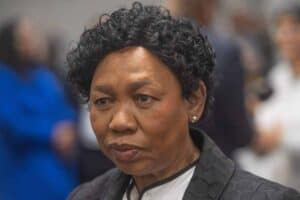In solidarity, black business, clergy and local government leaders in the US will be in the country to form alliances with their counterparts – to shore up opportunities on both sides of the Atlantic.

There was a time in the history of South Africa when voices of the liberation movement, which included the ANC and the Pan Africanist Congress, were muzzled by the powerful National Party apartheid regime machinery – led by PW Botha and the army of his securocrats.
This was in the ’80s, decades after the Sharpeville massacre and, later, the 16 June, 1976 Soweto student revolt against Afrikaans being used as a medium of instruction in black township schools.
Speaking out against the system of government meant death, detention or imprisonment on Robben Island. The other alternative was to join the army of freedom fighters who left these shores for exile.
For journalists, organs of civil society, cadres of the United Democratic Front, trade union leaders and the clergy who remained behind, there was no other alternative than speaking out and writing against injustice.
As South Africa continues to reflect on the 30 years of democracy, lessons learnt from the past should not fade into thin air.
So crucial was the role played by the clergy – who faced the teargas, rubber bullets and live ammunition from security forces – that they were prepared to use the voice and the bible to challenge the might of apartheid.
ALSO READ: NPO on a road trip across SA to hand over blankets before winter kicks in
With liberation theology being preached, churches became another theatre of struggle.
Whether you were in a church or mosque, places of prayer became a catalyst for the revolution, which led to the 1994 democracy.
Against this background, 18 July marks a significant day in the South African and United States calendar – the reSURGEnce economic conference will be held in Durban. It aims to strengthen African-American and black SA alliances – 30 years after freedom.
Having had the opportunity to meet and interact with the likes of US civil rights leader Reverend Jesse Jackson during one of his many visits to South Africa, I can attest to the valuable role African-Americans played in support of our struggle for freedom.
In a strong show of solidarity, black business, clergy and local government leaders in the US will be in the country to form alliances with their counterparts – to shore up opportunities on both sides of the Atlantic.
As South Africans celebrate 30 years of freedom, Durban will host a delegation of African-Americans, who will participate in the five-day reSURGEnce conference at the International Convention Centre. Special international Mandela Day activities are also planned.
ALSO READ: Changing political landscapes: From Madiba in’94 to Cyril now
Among the Americans participating in this important exchange are celebrity chef Melba Wilson, #BlackLivesMatter cofounder Ayo Tometi, New York state senator James Sanders Jnr, gospel legend Shirley Caesar and multi-Grammy winner Bishop Hezekiah Walker. They will join a star-studded cast for a music festival to culminate in the cultural and business bond.
Since 2011, The New York Christian Times and Black Church Means Business have been organising similar trips in Africa.
According to business leader Dennis Dillon, who is a publisher and conference convenor, the ongoing mission and commitment is to “strengthen economic collaboration between blacks in Africa and African-Americans”.
“We are purposeful that together we must drive an economic revival in our global African village,” said Dillon.
“We must break the economic stranglehold and help get black people, communities, municipalities and the black world, to be on a path to economic sustainability and progressive growth.”
This will certainly go down as a historic and memorable gathering.
ALSO READ: Students on the frontline: ‘SA and the US share a history of protest against white supremacy’






